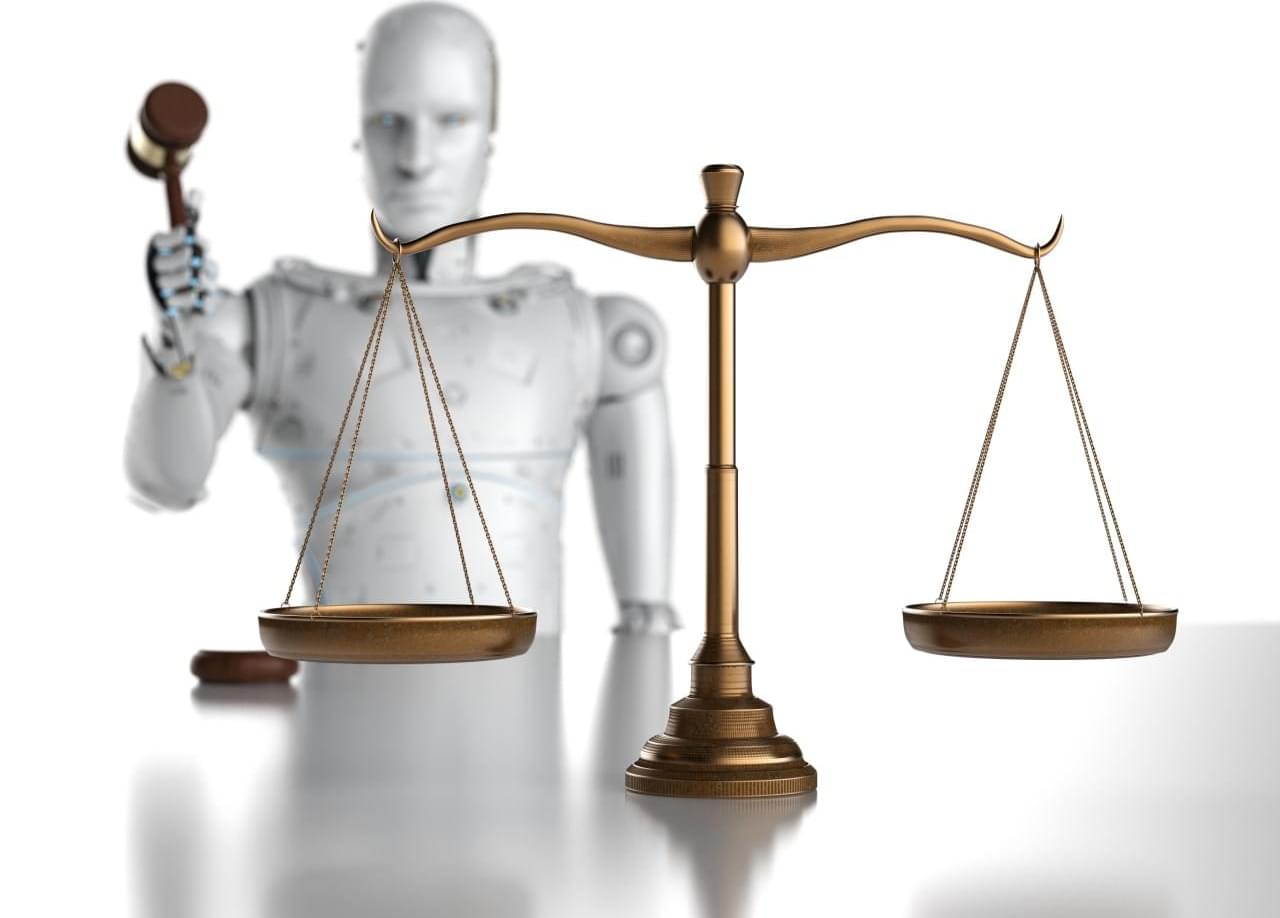Now is the time to ask hard questions about what AI systems should and should not be able to do in the real world. Otherwise, the future may come faster than we expect



Join us this episode as we explore how a cutting-edge, high-throughput screening platform can identify lifespan-extending compounds in diverse model organisms, with Dr Kevin Perez, co-founder of Epiterna and Junior Group Leader at Charité Universitätsmedizin Berlin, and host Prof Brian Kennedy, Director of the Centre for Healthy Longevity at #NUSMedicine.
Register for upcoming #HealthyLongevity #webinar sessions at https://nus-sg.zoom.us/webinar/register/2117367621680/WN_g5RF29EWQf65KDFfpVLjFA
Disclaimer: The opinions and advice expressed in this webinar are those of the speakers and do not represent the views and opinions of the organizers and National University of Singapore or any of its subsidiaries or affiliates. The information provided in this webinar is for general information purposes only as part of a general discussion on public health. The information is not intended to be a substitute for professional medical advice, diagnoses or treatment; and cannot be relied on in place of consultation with your licensed healthcare provider. All Rights Reserved.
All of the proceedings of this webinar, including the presentation of scientific papers, are intended for limited publication only, and all property rights in the material presented, including common-law copyright, are expressly reserved to the speaker or NUS. No statement or presentation made is to be regarded as dedicated to the public domain.
Any sound reproduction, transcript or other use of the material presented at this course without the permission of the speaker or NUS is prohibited to the full extent of common-law copyright in such material.



The company has been negotiating with both the Austin city authorities and the city’s autonomous vehicle working group since May 2024 regarding the introduction of the Robotaxi service safely. Set for release in June 2025, this fully self-driving fleet is a backup plan to the journey that Tesla is eager to accomplish of manufacturing electric and self-driving vehicles that can revolutionize city transportation.
During the Q4 2024 earnings conference call on January 29, Elon Musk announced the plan for the Robotaxi rollout in Austin. At the end of the interview, Musk further said, “We feel confident in being able to do an initial launch of unsupervised, no one in the car, full self-driving in Austin in June.” He noted that the process would be progressive to avoid risks that are associated with accidents and legal issues.
The future is autonomous & it starts in Austin, this June.
Artificial Intelligence is evolving rapidly, bringing us closer to the Singularity—a future where AI surpasses human intelligence. This shift could transform every aspect of life, from jobs to technology, creating both exciting possibilities and significant risks. As AI continues to advance at an unprecedented pace, understanding its impact on society is more crucial than ever.
🔍 Key Topics Covered:
The rapid evolution of AI and its connection to the looming Singularity, where machines may surpass human intelligence.
How AI could reshape industries, jobs, and even human life as we know it.
The potential risks of uncontrolled AI growth, including the rise of misinformation, biased outcomes, and the threat of AI-designed chemical weapons.
The need for a global governance framework to regulate and monitor AI advancements.
The ethical and philosophical questions surrounding AI’s role in society, including its impact on human consciousness and labor.
🎥 What You’ll Learn:
The rapid advancement of artificial intelligence and its potential to reach the Singularity sooner than expected.
How AI systems like neural networks and symbolic systems impact modern technology and the dangers they pose when left unchecked.
The role AI could play in jobs, governance, and the potential for global cooperation to ensure safe AI development.
Insight into real-world concerns such as disinformation, biased AI systems, and even the possibility of AI leading to catastrophic societal changes.
📊 Why This Matters:
These developments highlight the critical need for responsible AI governance as the technology progresses toward potentially surpassing human intelligence. Understanding the rapid growth of AI and its implications helps us prepare for the future, where machines could fundamentally change society. Whether you’re interested in technology, philosophy, or the future of work, this content offers an in-depth look at the powerful impact AI will have on the world.
*DISCLAIMER*:
The content presented is for informational and entertainment purposes, offering insights into the future of AI based on current trends and technological research. The creators are not AI experts or legal professionals, and the information should not be taken as professional advice. Viewer discretion is advised due to the speculative nature of the topics discussed. The views expressed are those of the content creator and do not necessarily represent any affiliated individuals or organizations.
#ai.
This compares some of the ringworlds, centrifuges, space stations, and ships that use spin to make gravity. It also try’s to show how the variables of artificial gravity are used to make centripetal acceleration into spin gravity.
Calculator used: https://www.artificial-gravity.com/sw/SpinCalc/
▀▀▀▀▀▀▀▀▀▀▀▀▀▀▀▀▀▀▀▀▀▀▀▀▀▀
REFERENCES
1. Hill, Paul R.; Schnitzer, Emanuel (1962 September). “Rotating Manned Space Stations.” In, Astronautics (vol. 7, no. 9, p. 14
18). Reston, Virginia, USA: American Rocket Society / American Institute of Aeronautics and Astronautics.
2. Gilruth, Robert R. (1969). “Manned Space Stations – Gateway to our Future in Space.” In S. F. Singer (Ed.), Manned.
Laboratories in Space (p. 1–10). Berlin, Germany: Springer-Verlag.
3. Gordon, Theodore J.; Gervais, Robert L. (1969). “Critical Engineering Problems of Space Stations.” In S. F. Singer (Ed.).
Manned Laboratories in Space (p. 11–32). Berlin, Germany: Springer-Verlag.
4. Stone, Ralph W. (1973). “An Overview of Artificial Gravity.” In A. Graybiel (Ed.), Fifth Symposium on the Role of the.
Vestibular Organs in Space Exploration (NASA SP-314, p. 23–33). Pensacola, Florida, USA, 19–21 August 1970.
Washington, DC, USA: NASA
5. Cramer, D. Bryant (1985). “Physiological Considerations of Artificial Gravity.” In A. C. Cron (Ed.), Applications of Tethers in.
Space (NASA CP-2364, vol. 1, p. 3·95–3·107). Williamsburg, Virginia, USA, 15–17 June 1983. Washington, DC, USA:
NASA.
6. Graybiel, Ashton (1977). “Some Physiological Effects of Alternation Between Zero Gravity and One Gravity.” In J. Grey (Ed.).
Space Manufacturing Facilities (Space Colonies): Proceedings of the Princeton / AIAA / NASA Conference, May 7–9, 1975
7. Hall, Theodore W. “Artificial Gravity in Theory and Practice.” International Conference on Environmental Systems, 2016, www.artificial-gravity.com/ICES-2016–194.pdf.
▀▀▀▀▀▀▀▀▀▀▀▀▀▀▀▀▀▀▀▀▀▀▀▀▀▀
SOCIAL
Twitter: https://twitter.com/OverviewEfect.
Instagram: https://www.instagram.com/overviewefects/
Facebook: https://www.facebook.com/profile.php?id=61552024642764
▀▀▀▀▀▀▀▀▀▀▀▀▀▀▀▀▀▀▀▀▀▀▀▀▀▀
ATTRIBUTION
Mass Effect music from @MrHulthen Check it out and his channel here: https://www.youtube.com/watch?v=57-xIuu4Vv.
“Citadel (Mass Effect)” (https://skfb.ly/6CLEX) by Yanez Designs is licensed under Creative Commons Attribution.
“Babylon 5 Station (Babylon 5)” (https://skfb.ly/6pFJp) by uperesito is licensed under Creative Commons Attribution.
“Halo Ring” (https://skfb.ly/orU8C) by Inditrion Dradnon is licensed under Creative Commons Attribution.
“Empire State Building” (https://skfb.ly/BGwU) by Microsoft is licensed under Creative Commons Attribution (http://creativecommons.org/licenses/by/4.0/).
“MCRN Tachi [Expanse TV Show]” (https://skfb.ly/o6JGy) by Jakub. Vildomec is licensed under Creative Commons Attribution.
“endurance spaceship” (https://skfb.ly/6TnFK) by devanshujha is licensed under Creative Commons Attribution.
“Discovery 1″ (https://skfb.ly/6oRCD) by uperesito is licensed under Creative Commons Attribution.
“Soviet Nuclear Computer Terminal” (https://skfb.ly/prtFw) by PIPO is licensed under Creative Commons Attribution.
“Hail Mary Ship” by MallocArray https://www.printables.com/model/232479-hail-mary-ship/files.
“Death Star — Star Wars” (https://skfb.ly/oqGZX) by Quiznos323.
▀▀▀▀▀▀▀▀▀▀▀▀▀▀▀▀▀▀▀▀▀▀▀▀▀▀
Convergent engagement of neural and computational sciences and technologies are reciprocally enabling rapid developments in current and near-future military and intelligence operations. In this podcast, Prof. James Giordano of Georgetown University will provide an overview of how these scientific and technological fields can be — and are being — leveraged for non-kinetic and kinetic what has become known as cognitive warfare; and will describe key issues in this rapidly evolving operational domain.
James Giordano PhD, is the Pellegrino Center Professor in the Departments of Neurology and Biochemistry; Chief of the Neuroethics Studies Program; Co-director of the Project in Brain Sciences and Global Health Law and Policy; and Chair of the Subprogram in Military Medical Ethics at Georgetown University Medical Center, Washington DC. Professor Giordano is Senior Bioethicist of the Defense Medical Ethics Center, and Adjunct Professor of Psychiatry at the Uniformed Services University of Health Sciences; Distinguished Stockdale Fellow in Science, Technology, and Ethics at the United States Naval Academy; Senior Science Advisory Fellow of the SMA Branch, Joint Staff, Pentagon; Non-resident Fellow of the Simon Center for the Military Ethic at the US Military Academy, West Point; Distinguished Visiting Professor of Biomedical Sciences, Health Promotions, and Ethics at the Coburg University of Applied Sciences, Coburg, GER; Chair Emeritus of the Neuroethics Project of the IEEE Brain Initiative; and serves as Director of the Institute for Biodefense Research, a federally funded Washington DC think tank dedicated to addressing emerging issues at the intersection of science, technology and national defense. He previously served as Donovan Group Senior Fellow, US Special Operations Command; member of the Neuroethics, Legal, and Social Issues Advisory Panel of the Defense Advanced Research Projects Agency (DARPA); and Task Leader of the Working Group on Dual-Use of the EU-Human Brain Project. Prof. Giordano is the author of over 350 peer-reviewed publications, 9 books and 50governmental reports on science, technology, and biosecurity, and is an elected member of the European Academy of Science and Arts, a Fellow of the Royal Society of Medicine (UK), and a Fulbright Professorial Fellow. A former US Naval officer, he was winged as an aerospace physiologist, and served with the US Navy and Marine Corps.
Originally released December 2023._ In today’s episode, host Luisa Rodriguez speaks to Nita Farahany — professor of law and philosophy at Duke Law School — about applications of cutting-edge neurotechnology.
They cover:
• How close we are to actual mind reading.
• How hacking neural interfaces could cure depression.
• How companies might use neural data in the workplace — like tracking how productive you are, or using your emotional states against you in negotiations.
• How close we are to being able to unlock our phones by singing a song in our heads.
• How neurodata has been used for interrogations, and even criminal prosecutions.
• The possibility of linking brains to the point where you could experience exactly the same thing as another person.
• Military applications of this tech, including the possibility of one soldier controlling swarms of drones with their mind.
• And plenty more.
In this episode:
• Luisa’s intro [00:00:00]
• Applications of new neurotechnology and security and surveillance [00:04:25]
• Controlling swarms of drones [00:12:34]
• Brain-to-brain communication [00:20:18]
• Identifying targets subconsciously [00:33:08]
• Neuroweapons [00:37:11]
• Neurodata and mental privacy [00:44:53]
• Neurodata in criminal cases [00:58:30]
• Effects in the workplace [01:05:45]
• Rapid advances [01:18:03]
• Regulation and cognitive rights [01:24:04]
• Brain-computer interfaces and cognitive enhancement [01:26:24]
• The risks of getting really deep into someone’s brain [01:41:52]
• Best-case and worst-case scenarios [01:49:00]
• Current work in this space [01:51:03]
• Watching kids grow up [01:57:03]
The 80,000 Hours Podcast features unusually in-depth conversations about the world’s most pressing problems and what you can do to solve them.
Learn more, read the summary and find the full transcript on the 80,000 Hours website:
Nita Farahany on the neurotechnology already being used to convict criminals and manipulate workers